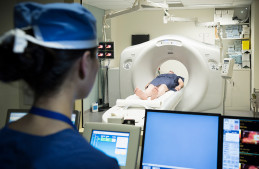- Study type
- Benefit
- Location
-
-
2 milesAny
- Completion time
-
20 minAny
- Keywords & Disciplines
-

PEACE Study
University of Oxford, GB
Would you be interested in a study to help understand how the brain works?
If you, or someone you know, may be interested please use the contact information below to find out more about the study. There is no obligation to participate.
Volunteers may be compensated £235-£355 for their...- 5 Week(s) to complete
- £235 - £355
- Experiment
- Warneford Ln, Headington, Oxford OX3 7JX, UK
23 September 2025 Requirements- Age 18-65
- Healthy Volunteers
-

fMRI Virtual Reality Study
University College London, GB
Join us in this fMRI study investigating how people learn about the relation between situations and mildly uncomfortable electrical stimulations in their environment.
• Inside the scanner you will engage with VR scenarios designed to enlighten our understanding of human learning and...- 180 Min(s) to complete
- £90
- Experiment
- Wellcome Trust Centre, 12 Queen Square, London WC1N 3AR, UK
05 September 2025 Requirements- - You must be aged between 18 and 30 years old
- - Have normal or corrected-to-normal vision and hearing.
- - You must be healthy with no history of neurological or mental health conditions.
- - Must not be pregnant
- - Must not have tattoos above the crease of the elbows (this includes semi-permanent tattooing procedures such as micro-blading)
- - Must not have any metallic objects that cannot be removed for the scan.
- Further eligibility requirements will be discussed in a phone call once you have signed up to the study.
